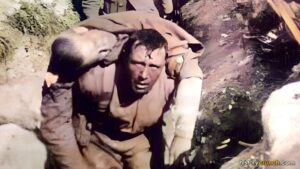Muckrakers in the Progressive Era were an important aspect of American history in the late 19th century and early 20th century. The Progressive Era occurred approximately from the 1890s to the 1920s,and was a time of significant social and political reform in the United States. For instance, during the rapid industrialization and urbanization, a group of investigative journalists known as ‘muckrakers’ emerged. These journalists dedicated themselves to uncovering and exposing the corruption, exploitation, and injustices that were present in American society at the time. Their work played a crucial role in bringing about reforms that improved the lives of many Americans.
WHAT IS A ‘MUCKRAKER’?
As stated above, ‘Muckrakers’ were journalists and writers who sought to expose societal issues such as political corruption, poor working conditions, and unfair business practices. The term ‘muckraker’ was coined by American President Theodore Roosevelt, who compared these journalists and writers to a character in John Bunyan’s ‘Pilgrim’s Progress’. The character was notable for raking up filth. Despite the initial negative meaning behind the term, it came to represent the important role these journalists played in advocating for change during the Progressive Era in American History.
SIGNIFICANT MUCKRAKERS IN THE PROGRESSIVE ERA
One of the most famous muckrakers was Upton Sinclair, whose 1906 novel ‘The Jungle’ exposed the appalling conditions in the meatpacking industry. Sinclair’s vivid descriptions of unsanitary practices and worker exploitation shocked the public and led to significant food safety reforms, including the passage of the Pure Food and Drug Act and the Meat Inspection Act in 1906.
Ida Tarbell was another prominent muckraker whose investigative journalism had a profound impact on American society in the Progressive Era. Her series of articles, later published as “’The History of the Standard Oil Company’ in 1904, documented the ruthless business practices of John D. Rockefeller’s Standard Oil. Tarbell’s work contributed to the public anger that eventually led to the breakup of Standard Oil under antitrust laws in 1911.
Lincoln Steffens focused on political corruption in American cities. His book ‘The Shame of the Cities’ (1904) exposed corruption in municipal governments. By highlighting the corruption that plagued cities like St. Louis, Minneapolis, and Pittsburgh, Steffens helped bring attention to the movement for political reform.
Jacob Riis used photography and journalism to expose the harsh realities of life in New York City’s tenements, which was crowded row housing that was common in the industrial cities of the time. His book ‘How the Other Half Lives’ (1890) revealed the terrible living conditions faced by the urban poor. Riis’s work raised public awareness and helped bring about housing reforms and improvements in urban living conditions.
IMPACTS OF THE MUCKRAKERS IN THE PROGRESSIVE ERA
Muckrakers used several investigative techniques to uncover the truth. More specifically, they carried out interviews, reviewed documents, and often went undercover to gather first hand evidence. Their reports were published in popular magazines such as McClure’s, Collier’s, and Cosmopolitan, reaching a wide audience and generating public anger and frustration. This was important, because it led to the governments of the time implementing reforms to deal with corruption and injustices.
The muckrakers had a profound impact on public opinion and policy. For example, their work created public outrage and demanded accountability from corporations and government officials. This widespread discontent often translated into political pressure, leading to significant legislative reforms. For instance, Upton Sinclair’s ‘The Jungle’ directly influenced the establishment of the Food and Drug Administration (FDA) and stricter food safety regulations. Similarly, Ida Tarbell’s exposure of Standard Oil’s monopolistic practices led to stronger antitrust laws. The efforts of muckrakers like Lincoln Steffens and Jacob Riis also contributed to urban reforms, such as better housing codes and efforts to clean up municipal governments.


